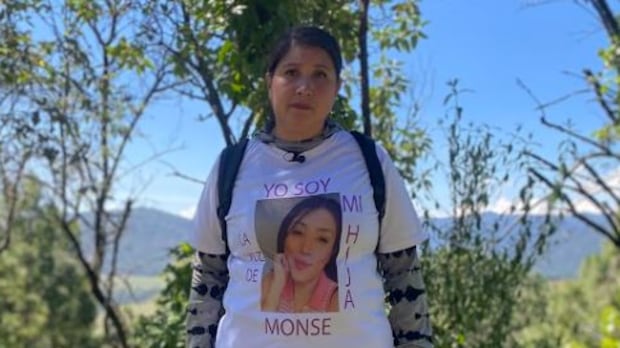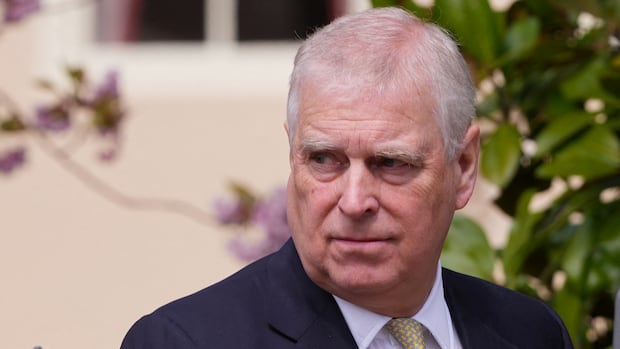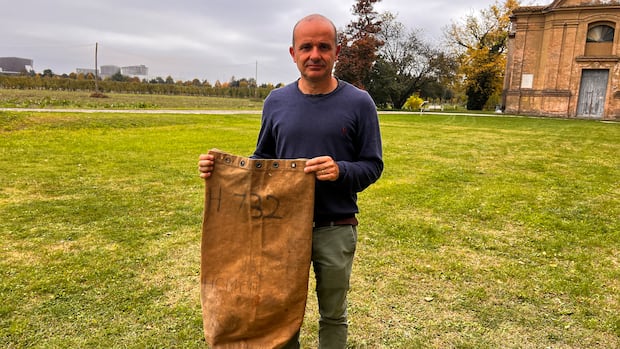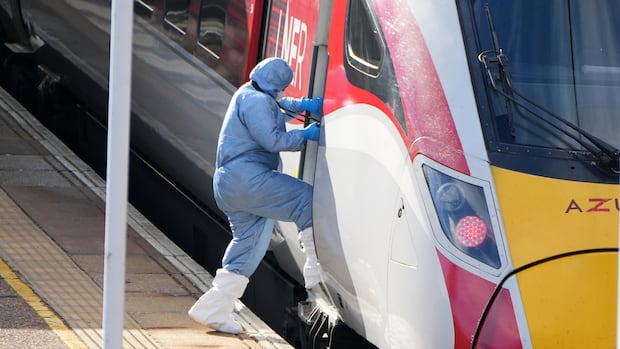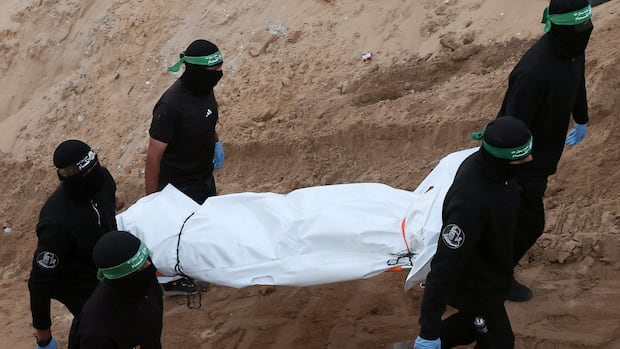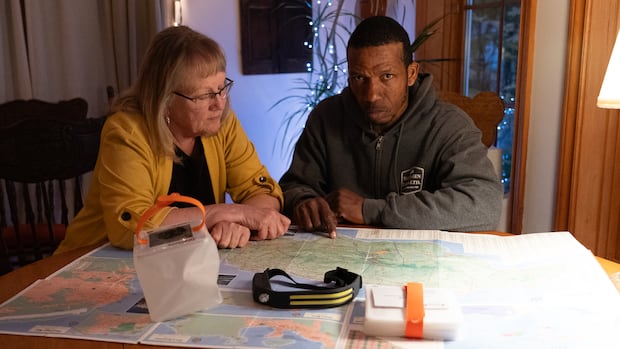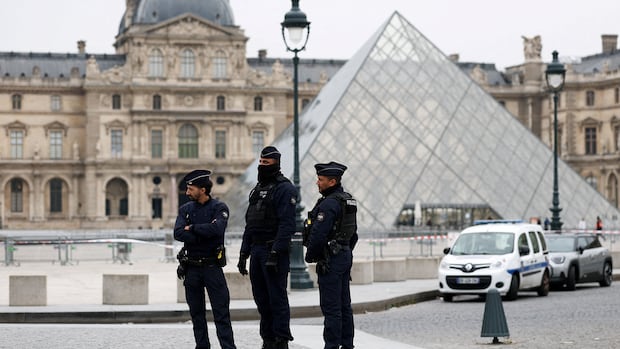Two suspects in the Louvre jewel heist have "partially" admitted their participation and are believed to be the men who forced their way into the world's most-visited museum, a Paris prosecutor said Wednesday.
Laure Beccuau told a news conference that the two suspects face preliminary charges of theft committed by an organized gang and criminal conspiracy.
It took thieves less than eight minutes to steal the jewels worth an estimated $143 million Cdn on Oct. 19, shocking the world.
One suspect is a 34-year-old Algerian national who has been living in France since 2010, Beccuau said. He was arrested Saturday night at Charles de Gaulle airport as he was about to fly to Algeria with no return ticket. He was living in Paris's northern suburb of Aubervilliers and was known to police mostly for road traffic offences, Beccuau said.
The other suspect, 39, was arrested Saturday night at his home in Aubervilliers. "There is no evidence to suggest that he was about to leave the country," Beccuau said. The man was known to police for several thefts, and his DNA was found on one of the glass cases where the jewels were displayed and on items the thieves left behind, she added.
Prosecutors had faced a late Wednesday deadline to charge the suspects, release them or seek a judge's extension.
Jewels still missingThe jewels have not been recovered, Beccuau said.
"These jewels are now, of course, unsellable ... Anyone who buys them would be guilty of concealment of stolen goods," she warned.
"It's still time to give them back."
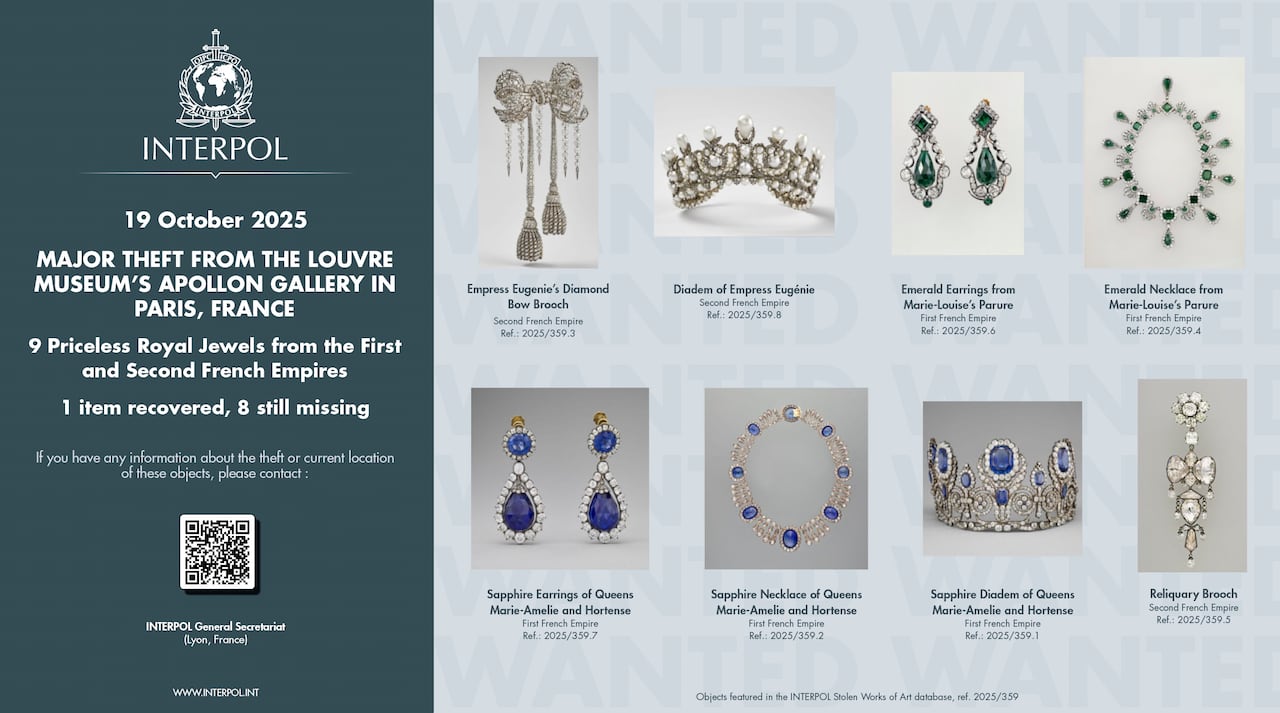 This photo provided Thursday Oct. 23, 2025 by Interpol and taken from its website shows the jewels stolen in the Louvre museum on Sunday Oct.19, 2025 in Paris. (Interpol/The Associated Press)
This photo provided Thursday Oct. 23, 2025 by Interpol and taken from its website shows the jewels stolen in the Louvre museum on Sunday Oct.19, 2025 in Paris. (Interpol/The Associated Press)Earlier Wednesday, French police acknowledged major gaps in the Louvre's defences, turning the dazzling daylight theft into a national reckoning over how France protects its treasures.
Paris Police Chief Patrice Faure told Senate lawmakers that aging systems and slow-moving fixes left weak seams in the museum.
"A technological step has not been taken," he said, noting parts of the video network are still analog, producing lower-quality images that are slow to share in real time.
A long-promised revamp — a $93-million US project requiring roughly 60 kilometres of new cabling — "will not be finished before 2029–2030," he said.
Police first alerted by cyclistFaure also disclosed that the Louvre's authorization to operate its security cameras quietly expired in July and wasn't renewed — a paperwork lapse that some see as a symbol of broader negligence after thieves forced a window to the Apollo Gallery, cut into cases with power tools and fled with eight pieces of the French crown jewels within minutes while tourists were inside.
"Officers arrived extremely fast," Faure said, but he added the lag occurred earlier in the chain — from first detection, to museum security, to the emergency line, to police command.
Faure and his team said the first alert to police came not from the Louvre's alarms but from a cyclist outside who dialed the emergency line after seeing helmeted men with a basket lift.
WATCH | Arrests made over the weekend:The Paris prosecutor's office said one of the men had been taken into custody as he was preparing to take a flight from Charles de Gaulle Airport.Lack of private insuranceThe theft has also exposed an insurance blind spot: officials say the jewels were not privately insured. The French state self-insures its national museums, because premiums for covering priceless heritage are astronomically high — meaning the Louvre will receive no payout for the loss. The financial blow, like the cultural wound, is total.
Faure pushed back on quick fixes. He rejected calls for a permanent police post inside the palace-museum, warning it would set an unworkable precedent and do little against fast, mobile crews. "I am firmly opposed," he said. "The issue is not a guard at a door; it is speeding the chain of alert."
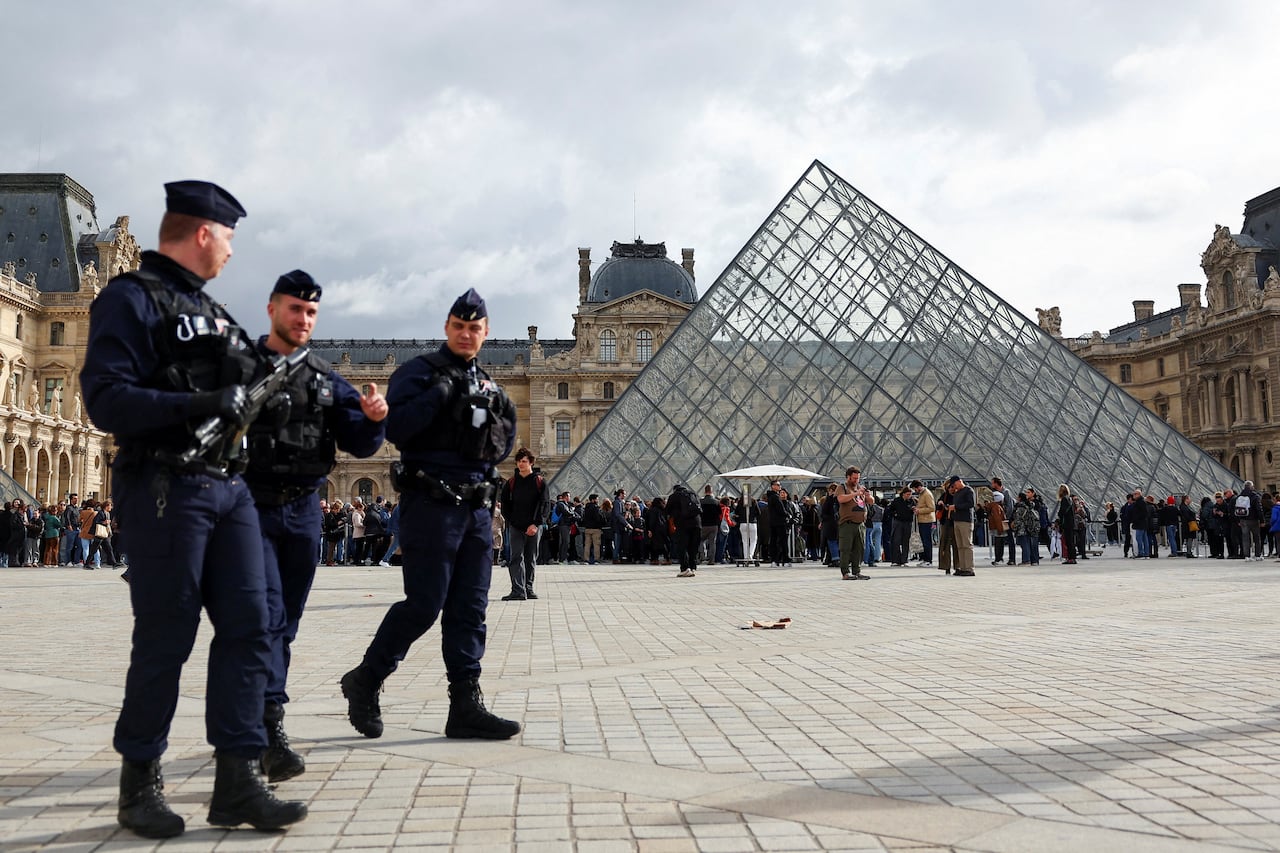 French CRS riot police officers walk near the glass pyramid at the Louvre Museum Monday, after French police arrested suspects in the heist case. (Abdul Saboor/Reuters)
French CRS riot police officers walk near the glass pyramid at the Louvre Museum Monday, after French police arrested suspects in the heist case. (Abdul Saboor/Reuters)He urged lawmakers to authorize tools currently off-limits: AI-based anomaly detection and object tracking (not facial recognition) to flag suspicious movements and follow scooters or gear across city cameras in real time.
The Oct. 19 heist was swift and simple. In the morning rush, thieves reached the jewel gallery near streetside windows, cut through reinforced cases and vanished in minutes. Former bank robber David Desclos told AP the operation was textbook and vulnerabilities were glaringly obvious in the layout of the gallery.
Museum, culture officials under pressureCulture Minister Rachida Dati, under pressure, has stayed defensive, refusing the Louvre director's resignation and insisting alarms worked while acknowledging "security gaps did exist." She has kept details to a minimum, citing ongoing investigations.
The reckoning lands at a museum already under strain. In June, the Louvre shut in a spontaneous staff strike — including security agents — over unmanageable crowds, chronic understaffing and "untenable" conditions. Unions say mass tourism and construction pinch points create blind spots, a vulnerability underscored by the thieves who rolled a basket lift to the Seine-facing façade and reached the hall displaying the crown jewels.
Faure said police will now track surveillance-permit deadlines across institutions to prevent repeats of the July lapse. But he stressed the larger fix is disruptive and slow: ripping out and rebuilding core systems while the palace stays open and updating the law so police can act on suspicious movement in real time — before a scooter disappears into Paris traffic and diamonds into history.
Experts fear the stolen pieces may already be broken down and stones recut to erase their past, a prospect that adds urgency to France's debate over how it guards what the world comes to see.


